The largest trade union in the Netherlands has given its support to persecuted workers in Iran, urging President Rouhani to honor the rights of his country's working people, and hosting an event to show members’ solidarity with their plight.
The Federatie Nederlandse Vakbeweging (FNV, the Federation of Dutch Trade Unions) is the biggest federation of trade unions in the Netherlands, with some 1.1 million members. Originally founded in 1976 as a confederation of two unions, the Catholic NKV and social-democratic NVV, the union covers 26 sectors in almost all areas of the Dutch economy and has been an important power-broker in Dutch socio-political life, as well as drawing attention to international causes such as the Iranian one. IranWire spoke to Tuur Elzinga, vice president and international secretary of the FNV, and to Roya Moayyed, an Iranian FNV member who both outlined FNV’s accomplishments and its recent solidarity movement in favor of Iranian workers.
National Unity with Great Bargaining Power
In the 1960s, the Netherlands went through a period of “deconfessionalization” in politics — whereby politics were no longer necessarily linked to one religion or another. The shift was also reflected in trade unions. “Catholic and Socialist trade union confederations merged into the FNV,” says Tuur Elzinga. "In essence, they tried to form a unity national center. We also had talks with the Christian confederations, but they decided to stay separate.” In other words, the Catholic NKV (Federatie Nederlandse Vakbeweging, or Federation of Dutch Trade Unions) and the NVV (Nederlands Verbond van Vakverenigingen, or Dutch Association of Trade Unions) gradually merged into the FNV.
The FNV and its predecessors have been very influential in rendering politics more worker-friendly throughout Dutch history. “[Our] history starts 125 years ago,” Elzinga says. “One of the first big struggles was to establish an eight-hour working day — like everyone else basically, [like the] international labor movement. This is something that unions have achieved in Western Europe, including in the Netherlands. Then we improved many things including the quality of work, quality of labor conditions, labor relations, social dialogue, etc.”
The post-World War Two era and the reconstruction drive in Europe also ushered in a large amount of labor activity. Elzinga regards this period as one of achievements for the Netherlands, but says it has also been a period of “negotiations through social dialogue,” leading to the establishment of a high-quality welfare state and a good pensions system in the 1960s and 1970s.
Fighting against Austerity
As a neoliberal economic order started sweeping through the world from the 1980s onwards, it gave rise to retrenchments in the welfare state provisions worldwide, including the Netherlands. “Like many unions in the world, we had the same issues,” Elzinga says. “We had to fight against austerity measures. For a long time, we were able to fight against the extremes of the austerity measures and privatizations. Everything that happened in the United States and the United Kingdom [in terms of austerity measures] happened here too, but 10 years later. We were able to fight, but in the end, we were still forced into a defensive position, trying to defend whatever we had built up before.”
In the climate of these retrenchments and neoliberalism’s increasing encroachments on the Netherlands’ welfare state, the FNV fought very hard.“Compared to many other countries, we still have quite a good level of a welfare state, a very good pension system,” Elzinga points out. “But on the other hand, we have a highly flexible labor market — i.e., we have lost quite a bit [when it comes to labor conditions].”
Such so-called “flexible” labor conditions pose a danger to job security in a range of fields. The FNV has been fighting against this increasingly worker-unfriendly flexibility. “The FNV, from left to right in politics, agrees at least on the problem. Whereas in the 1990s, the FNV was liberal or neo-liberal—except for a handful of people who called themselves socialists or something else — now, left to right, everyone agrees that the free market has gone too far, that liberalization has gone too far, that we have reached the limits and that we have to re-regulate the labor market in order to make competition more fair.”
Despite the fact that the FNV has been a force to be reckoned with in the Netherlands, workers there have had to press more forcefully in order to safeguard some of their hard-earned rights and benefits. “Luckily, we are not imprisoned [here in the Netherlands]. But we are also still forced to fight for our rights,” Elzinga says. “For example, last year we had some national political strikes for a better pension system — to be able to stop working before we die, basically. Luckily, we reached an agreement after a couple of days. But in many sectors, we’re still fighting for better pay. Teachers are on strike in the Netherlands as well. You probably cannot compare the situation of teachers here with teachers in Iran, but still some classes are forced to close a couple of weeks before Christmas because the funds have run out. There are not enough teachers for every school, because there is not enough pay, so we are fighting with our department of education.”
A Long Commitment to International Solidarity
The Netherlands is a small country, so solidarity is crucial. “We have always known that if you want to achieve something, you have to co-operate [internationally], especially when the global economy is being integrated worldwide, where we have the European labor market with many people working abroad...So you need solidarity”.
The FNV has collaborated with different trade unions internationally. “For example, the International Transport Federation (ITF), which was formed in the late 1800s and which is now in London, was actually based in the Netherlands for some time,” Elzinga says. Moreover, the International Trade Union Confederation, the ITUC, “which is now based in Brussels, was [for] quite a while based in Amsterdam. So, we have always known as a small country with a very open economy that we needed international co-operation. One of the first leaders of the trade union in the ILO [the International Labour Organisation] was from the Netherlands. We have always worked closely with other unions in the ITUC and in the global union federations in the ILO.”
Meanwhile, Dutch trade unions have collaborated with trade unions in developing countries and/or those in more authoritarian settings. As Elzinga states, “we have also been able to help trade unions in a less fortunate position. For example, thanks to the influence of the FNV, Netherlands played a quite a big role in understanding the Plaza Disaster in Bangladesh.”
Support for Iranian Workers
As Iranian workers and teachers have been in the throes of systematic repression, the FNV has expressed its full support for their rights and showed solidarity with them.
On November 22, 2019, it held a solidarity campaign to highlight the repression Iranian workers are suffering from, which coincided with the 100th anniversary of the establishment of the ILO. “Due to the objectionable state of workers’ rights in Iran, the FNV, in co-operation with the ILO, has been very sensitive to highlight their plight,” Roya Moayyed, and Iranian member of the FNV told IranWire. “They decided to put greater emphasis on this subject”.
The FNV’s engagement with the situation for Iranian workers goes back further than November, however. On May 1, International Labor Day, Moayyed says FNV officials addressed a letter to Iranian President Hassan Rouhani, “demanding the unconditional release of [labor rights activists] Esmail Bakhshi and Sepideh Gholian. They reminded Rouhani to respect the ILO Conventions concerning Freedom of Association and Protection of the Right to Organise, to which Iran is also a signatory.”
Elzinga says Iranian workers will continue to fight for their rights, and international labor organizations like the FNV will keep up the campaign
The FNV wrote to President Rouhani on International Workers' Day, May 1
for them. “They need to keep fighting,” Elzinga says. “It won’t happen unless we keep fighting for our rights. Internationally, [you should] know that you’re brothers and sisters of another trade union. They feel solidarity and they speak with you and, where possible, they are willing to support you.” He then added: “They have just and rightful demands. Unfortunately, if you want to have good working conditions and if you want rights as workers, and also trade union rights, often you have to fight for them.”
Also read:
British Columbian Union Shows Solidarity With Iranian Teachers
“We are appalled that people are incarcerated for their beliefs”
visit the accountability section
In this section of Iran Wire, you can contact the officials and launch your campaign for various problems




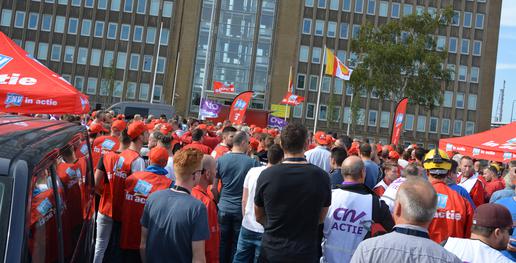
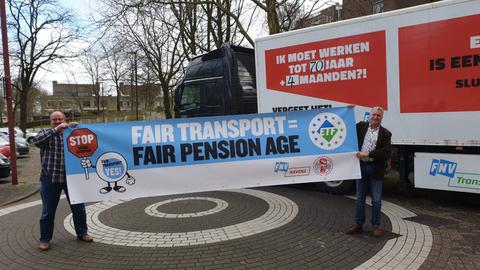
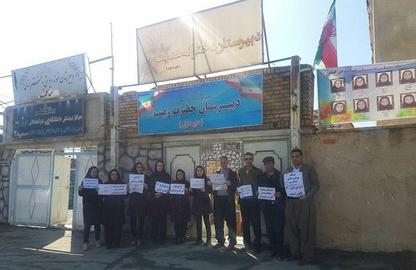
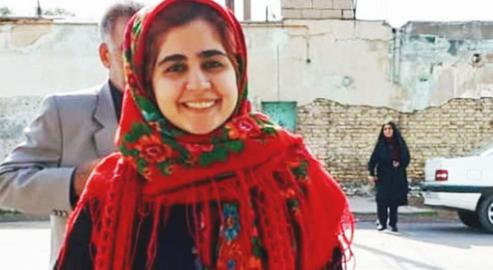

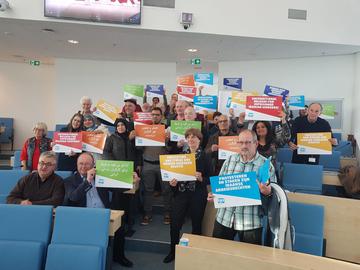




















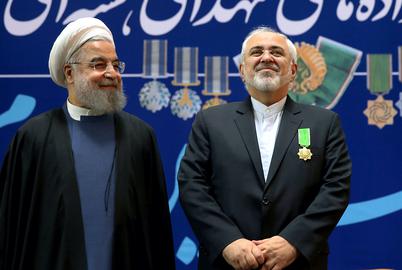
comments